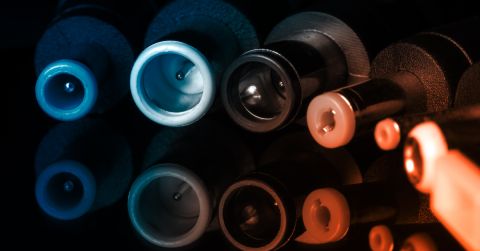The EU's New "Proof of Sustainability" Rule

The EU Parliament has approved a new law banning unsubstantiated product sustainability claims. However, before passing into law, the new legislation must still be approved by the EU Council, which reached a provisional agreement on the proposals with Parliament in September 2023. Once published in the EU’s Official Journal, member states will have two years to integrate the rules into national law.
The EU’s new Proof of Sustainability Rule aims to combat greenwashing, empower consumers with reliable, comparable and verifiable information on environmental impacts and performance, and help level the playing field regarding the environmental performance of products.
“This law will change the everyday lives of all Europeans! We will step away from throwaway culture, make marketing more transparent and fight premature obsolescence of goods. People will be able to choose products that are more durable, repairable and sustainable thanks to reliable labels and advertisements. Most importantly, companies can no longer trick people by saying that plastic bottles are good because the company planted trees somewhere – or say that something is sustainable without explaining how. This is a big win for all of us!” said Parliament’s rapporteur, Biljana Borzan.
The “Proof of Sustainability Rule”
According to the EU, 53% of green claims give vague, misleading or unfounded information.
Although organizations are often well-intentioned, when it comes to sustainability, it takes regulation to force real change.
The EU is taking swift action to protect consumers and the environment with a Proposal for a Directive on Green Claims that addresses greenwashing and aims to avoid misleading consumers by helping to clarify and validate the claims made on labels. The language used is often intentionally murky, designed to give a likely inaccurate but favorable impression of a product's environmental impacts and benefits.
“Ensuring that environmental labels and claims are credible and trustworthy will allow consumers to make better-informed purchasing decisions. It will also boost the competitiveness of businesses who are striving to increase the environmental sustainability of their products and activities,” states the EU.
By 2026, new regulations will prohibit sweeping environmental claims such as “eco” without corroborating evidence to support the validity of such claims. The regulations also ban claims based on emissions offsetting, a method that enables entities to compensate for their greenhouse gas emissions through projects that avoid or reduce emissions elsewhere.
Currently, product labels offer vastly varying levels of transparency, and due to the unreliability of unclear and not-well-substantiated claims, consumer trust in the information provided is, understandably, extremely low. The new rules aim to level the playing field when it comes to the environmental performance of products and contribute to a more sustainable economy by establishing requirements for substantiation of explicit environmental claims and thereby empowering consumers to make more accurately informed purchasing decisions.
The EU believes the new legislative framework will encourage large and transnational companies to adopt more sustainable practices and integrate sustainability information into their reporting cycle.
By establishing requirements for substantiation of explicit environmental claims and providing consumers with reliable, comparable, and verifiable information substantiated by recognized scientific approaches to identifying and measuring environmental impacts, environmental aspects and environmental performance of products or traders, the EU hopes to reduce the risk of greenwashing and remove barriers to the potential of green markets.
The proposal targets explicit claims that are not currently covered by other EU rules, “are made on a voluntary basis by businesses towards consumers,” and “cover the environmental impacts, aspects or performance of a product or the trader itself.”
The new regulations specify that generic terms such as “green,” “nature’s friend,” “biodegradable,” and “energy efficient” will only be permissible if the products can substantiate their “excellent environmental performance.”
To ensure consumers receive reliable, comparable and verifiable environmental information on products, the new rules introduce:
- clear criteria on how companies should prove their environmental claims and labels;
- requirements for these claims and labels to be checked by an independent and accredited verifier;
- new rules on the governance of environmental labeling schemes to ensure they are solid, transparent and reliable.
Deceptive advertising: greenwashing at its best (or worst)
False, unsubstantiated claims intended to mislead consumers can damage a brand's reputation, erode customer trust, and lead to huge financial penalties, including multi-million-dollar fines.
3M and PFAS
In the U.S., claims that products were free of per- and polyfluoroalkyl substances (PFAS—a group of chemicals used to make fluoropolymer coatings and products that resist heat, oil, stains, grease, and water) have triggered a pile of legislation. Under mounting financial and legislative pressure, 3M, the world’s largest manufacturer with current annual net sales of manufactured PFAS of approximately $1.3 billion, has announced it will be exiting all PFAS manufacturing by the end of 2025.
Keurig makes false recycling claims
Well-known brand Keurig’s greenwashing antics resulted in a $3 million fine imposed on Keurig Canada Inc. by Competition Bureau Canada for the “false or misleading environmental claims made to consumers about the recyclability of its single-use Keurig K-Cup pods.”
While Keuri marketed its K-Cups as being fully recyclable, the situation was more convoluted, facing issues with rejection due to characteristics of the product across provinces, minus the exceptions of Quebec and British Columbia. On top of the hefty financial penalty, the company was ordered to make packaging changes and publish notifications of the changes on the company's websites as well as social media and in local and national media outlets. They were also to include the information in packaging for new Keurig brewing machines and send an email to subscribers.
“Portraying products or services as having more environmental benefits than they truly have is an illegal practice in Canada. False or misleading claims by businesses to promote “greener” products harm consumers who are unable to make informed purchasing decisions, as well as competition and businesses who actually offer products with a lower environmental impact,” said Commissioner of Competition Matthew Boswell in a statement, mirroring the sentiments behind the EU’s new rule.
The quickly evolving landscape of sustainability regulations is ushering in a new era of corporate accountability and responsibility based on data, science, and proof.
The EU’s stringent approach to combatting greenwashing antics and providing consumers with reliable information that substantiates their positive environmental performance will position them as a global leader in the drive to more sustainable supply chains and help foster a culture of authenticity and consumer trust.










